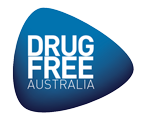Our Vision: To support and educate young people, their families and communities to prevent the damage caused by drugs
The President of Drug Free Australia, Major Brian Watters, has today urged the Prime Minister, Scott Morrison, to overturn the legalisation of cannabis by the Australian Capital Territory.
Major Watters is a former Australian representative to the United Nations’ International Narcotics Control Board (INCB) and was Chairman of Prime Minister John Howard’s Australian National Council on Drugs (ANCD) during the very successful ‘Tough on Drugs’ era of Australian drug policy.
Australia has long been a signatory, along with 185 other countries internationally, to the 1961 Single Convention on Narcotic Drugs, yet the ACT legislation flagrantly breaches that Convention, and on those grounds alone must be overturned.
He noted that the legalisation of recreational cannabis will not only substantially increase drug use in the ACT, but also in this country. Colorado, as one of the first two US States to legalise recreational cannabis saw an actual doubling of frequent users of cannabis (last 30 days) within the first three years of legalisation. Drugged driving, where cannabis was involved, increased 62% in two years and hospitalisations due to cannabis leapt from 6,715 in 2012 to 11,439 in 2014, the year after legalisation commenced.
Cannabis has been sold to the public by its advocates as a relatively benign drug, but that is not the picture that emerges from the most authoritative 2017 review of the tens of thousands of scientific studies on cannabis by the US National Institutes of Health, a body that ironically usually leans progressive on illicit drug issues. Cannabis use is associated with increased risk of psychoses such as schizophrenia. A recent Lancet article found that 30% of new cases of psychosis in London might have been avoided but for use of higher strength cannabis, and the same with 50% of new cases in Amsterdam. Psychoses are related to violent crime.[i] Cannabis is also associated with elevated suicide rates and of course with drugged driving. This is only the beginning of a long list of its social and health harms.
Australians do not want more drug use. 86% of Australians, according to the 2016 National Drug Strategy Household Survey (NDSHS), do not approve the regular use of cannabis, and two out of every three Australians do not want cannabis legalised. This latter statistic exists even without any existing media debate, as yet, on the harms of legalisation. This signals that Australians want less drugs, not more. Tough on Drugs, according to Table 25 of the 2016 NDSHS, reduced overall drug use in this country by 39%, and cannabis use decreased by 50%. Before Tough on Drugs we had been the highest cannabis abusing nation in the developed world.
Despite Australians clearly signalling what kind of society they want to live in, in terms of drug non-use, a political elite in Canberra has decided that they know better than their fellow Australians and has enacted policy that flies in the face of Australian attitudes. The result will be a constant flow of home and criminal-grown cannabis from the ACT to other surrounding states such as NSW and Victoria. On this we cite Colorado again.
Drug Free Australia played a part, alongside our affiliate, the Victorian Dalgarno Institute, in giving extensive evidence to the 2018 Federal Inquiry that rejected legislation aimed at removing Federal impediments to States legalising cannabis. Federal Parliament has already rejected cannabis legalisation, thus any Federal inaction concerning a Territory Government contravening that decision effectively voids that decision.
Gary Christian
SECRETARY
Drug Free Australia
0422 163 141
[i] Berenson, A Tell Your Children, Free Press, New York 2019 – see Introduction
